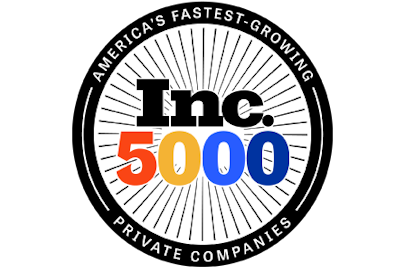In Her Own Words: Tynesia Boyea-Robinson on surviving as a Black, female entrepreneur during a pandemic
The pandemic revealed gaps in our economic system that took a serious toll on Black businesses. Tynesia Boyea-Robinson figured out how to survive and created an organization to help others do the same.
“Black businesses were hit especially hard by the pandemic: Over 40% closed their doors during the initial lockdown from February to April 2020. I am a Black, female small business owner with a family who relies on me. I have been fortunate and successful, but I was almost shut out of accessing coronavirus relief funds because I did not have a formal relationship with a bank.
The pandemic has taught us that our economy does not function for everyone. Not having a formal banking relationship is a common barrier for Black business owners, and one of many barriers to success for Black businesses. If you are a white entrepreneur, you are able to benefit from a system that is set up to help you succeed. If you are a Black entrepreneur, you struggle to access capital and grow your business. Black-owned firms earn lower-levels of revenue than similar white firms and Black entrepreneurs are less likely to get loans than their white peers in the same industry. This “capital opportunity gap” exists regardless of academic credentials or experience.
This is unfortunate, because the reality is that supporting and investing in Black businesses not only helps those communities and entrepreneurs, but the entire economy. Research shows that if 15% of Black-owned businesses are able to hire at least one more employee, the US economy could grow by $55 billion and add 600,000 new jobs. Who wouldn’t support that?
Recognizing this potential, my company, CapEQ, an impact investment and advisory firm that works with companies and investors, partnered with the Surdna Foundation, the W.K. Kellogg Foundation, the Brookings Institution and others to launch the Path to 15|55. Path to 15|55 is a collaborative initiative to support Black businesses by identifying and removing systemic barriers that hinder their growth in every sector.
Research with our partners at the Brookings Institution showed the reasons for these barriers are as multifaceted as the history of race and racism in this country, but come down to the segregated and exclusionary relationship between financial services and Black communities.
Our CFO is an incredible partner and has both the network and experience to ensure my company has access to capital. He worked with a banker in his network who structured a line of credit with appropriate terms and also helped me access Covid PPP loans, when others like me were left on a pile of neglected paperwork. My CFO has both worked hard for these connections and, as a white man, benefits from a system that is less biased towards him than women and people of color.
Research shows that people are more willing to invest in those who like them, and the predominant holders of capital are other white men. White entrepreneurs are able to rely more on bank financing options to fund start-up costs, whereas entrepreneurs of color use personal savings and credit cards. This compounding inequity leaves entrepreneurs who look like me unable to tap into the full potential of their businesses. I am fortunate that my business benefited from the network and credibility of my CFO, but one-off wins are neither sustainable or acceptable. If we want Black businesses to thrive, we need capital and financial markets to work for us, not keep us out.
To learn more about what you can do to support Black businesses, visit Pathto1555.org.”
This is a time for virtual community and sharing. If you would like to contribute to this ongoing narrative on the impact of the pandemic, please send an e-mail to [email protected].
Comments:
Sorry, the comment form is closed at this time.





A WordPress Commenter
Hi, this is a comment.
To get started with moderating, editing, and deleting comments, please visit the Comments screen in the dashboard.
Commenter avatars come from Gravatar.